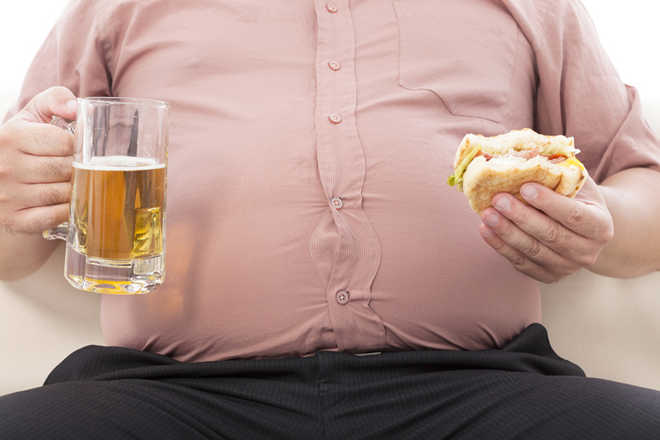Two states were in the news last week and established that corpulence is rampant across the country. One posed a problem the other offered a solution. A recently concluded study pointed to the growing girth of the average Punjabi and India’s wellness hotspot Kerala became the first Indian state to impose a “fat tax” (a surcharge placed on fattening food, beverages or overweight individuals to discourage unhealthy habits).
The “fat tax” is an example of Pigovian taxation -- it aims to offset the economic costs of obesity. It is not a new concept and has been used around the world with mixed results. It has been established that eating behaviour is more responsive to price rise than to nutritional education. Numerous studies suggest that as the price of food decreases, individuals get fatter. Experience has shown that cost has is the single biggest factor in reducing tobacco usage rather than awareness or self-control. Similarly, consumption of alcohol and sugar-laden carbonated drinks declined as their prices increased. The World Health Organization has proposed that nations consider taxing junk foods to encourage people to make healthier food choices.
In addition to its contribution to the ungainliness from extra weight, unhealthy eating is the cause of many diseases like diabetes, Alzheimer’s, heart disease and some types of cancer. It affects the quality of life due to hormone imbalance, chronic inflammation and fatigue. For this reason, some health authorities want to rename junk food which means ‘zero value’ to pathogenic (disease causing) food. But due to obvious economic implications this has not happened and marketing campaigns continue to portray them as convenient wonder foods
In a bid to counter rising obesity, Kerala finance minister Thomas Isaac announced a 14.5 % tax on fattening foods items like burgers, pizzas, tacos and sandwiches sold at branded restaurants and fast-food chains. The government said it hopes that the move will generate additional revenue for the state and also deter people from consuming junk food. Though it seems to be a step in the right direction, it raises two concerns. First, since the poor spend a greater proportion of their income on food, it will add to their misery. To make it less burdensome, proponents recommend earmarking the revenues thus collected to subsidise healthy foods and habits like gymming. Fat tax should not be used as a ploy to increase the tax burden, it should only be a means to redistributing it.
To identify junk food, it is necessary to define the essentials of a healthy diet. Wholesome food is naturally occurring, unadulterated, unprocessed and nutrient-rich. If you can grow or raise it, it’s real. Included are fresh fruits and vegetables, lentils and beans, eggs, real cheese, whole pieces of meat, nuts, seeds etc. Junk food is everything else. Broadly speaking if it comes in a tin, jar or box it is probably junk. Food fortification is used to make junk food appear healthy. The benefits of adding synthetic vitamins to items like processed flour is debatable because vitamins are not the only nutrients removed from it. Healthy fats, minerals, fibre and many phytonutrients are also lost in processing. More over adding vitamins gives the company freedom to put misleading claims like “contains 18 vitamins” or “100% of the daily need for folic acid” on its label.
Another great deception is the word “whole grain”. The only true whole grains are the kernels of oats, rice, wheat, rye, pulses etc. They take longer to cook and some need to be soaked. So if it is labor-saving and cooks fast, it is probably too good to be true!
For most Indians the mention of unhealthy fast food conjures images of pizzas, burgers and fries. Though it is the truth it is not the whole truth. We need to recognise the enemy within. Our own samosa, pakoda, bhatura, alu tikki, bada paav, uttapam, dosa, vada, bonda and the desi version of chowmein etc are loaded with trans-fats and have little nutritional value. The government is considering a “sin tax” on sugary carbonated drinks, but the sweets we eat to celebrate every occasion are worse. The truth is that in India most high-fat snacks and fast-food items are sold by unregulated street vendors rather than branded food chains. So, it is debatable how effective the proposed “fat tax” in Kerala would be.
Frankly speaking, until we accept the shortcomings in our own dietary habits there is a slim chance that we will whittle down our waistlines....
Or better still ...a fat chance!!
dr_manjugupta@icloud.com
Unlock Exclusive Insights with The Tribune Premium
Take your experience further with Premium access.
Thought-provoking Opinions, Expert Analysis, In-depth Insights and other Member Only Benefits
Already a Member? Sign In Now










